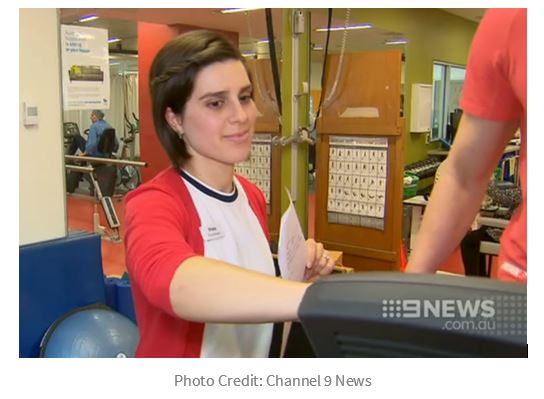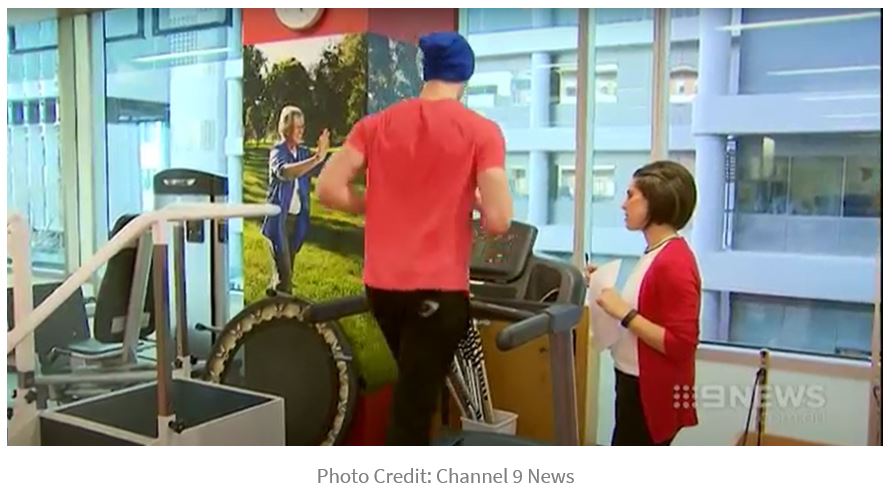Meet Acute Cardiorespiratory Physiotherapy PhD student Shaza Abo
Nearing the close of her six-year-long PhD journey, Clinical Researcher Shaza Abo shares her experience of undertaking a part-time PhD focusing on helping the recovery of patients with bone marrow transplants.
 Abo began her Physiotherapy studies with a four-year bachelor’s degree at La Trobe University in 2008. She later developed an interest in research while working clinically in hospitals. To explore this area further, she began a Master of Philosophy by Research at the University of Melbourne. This course inspired her to transition to a PhD to conduct further research.
Abo began her Physiotherapy studies with a four-year bachelor’s degree at La Trobe University in 2008. She later developed an interest in research while working clinically in hospitals. To explore this area further, she began a Master of Philosophy by Research at the University of Melbourne. This course inspired her to transition to a PhD to conduct further research.
A major aspect Abo enjoys about Physiotherapy is the versatility of the profession. “At the beginning of my career, I knew I wanted to work in hospitals as I wanted to learn a bit about every field through rotations,” she shared. “I discovered that I wanted to do acute physiotherapy and specialised in acute cardiorespiratory after working at the Peter MacCallum Cancer Centre and The Royal Melbourne Hospital.”
Abo decided to undertake her PhD part-time because she works predominantly as a Clinician-Researcher. Her first research project investigated the role of exercise in people who had blood cancers, specifically those who had a bone marrow transplant. With the support of Associate Professor Catherine Granger and her team, Abo’s study ran for six months and focused on a group-based outpatient program for people recovering after a bone marrow transplant. “I worked with the same patients all week and the research aspect acted as an additional element to the usual clinical treatment,” she explained.
At the close of her first research project, Abo applied for another grant with her supervisors Associate Professor Catherine Granger, Professor Linda Denehy and Professor David Ritchie. This project evolved into her PhD topic titled Feasibility of early-commencing group-based exercise in allogeneic bone marrow transplantation: the BOOST study. In this study, she further investigated the same patient group as in her previous study. The second project was also a feasibility study on using group-based programs to safely treat people who had recently received bone marrow transplants. “This time, the group-based program was designed to begin earlier, that is, during their hospital stay,” she shared. “We also investigated the emotional and social perspective from the group-based approach using interviews and questionnaires, not only the physical response to treatment.”
 Abo values maintaining a clinical element while conducting research. “One of my biggest passions is the patients. I personally get a lot of reward out of speaking to patients, working with them, seeing their improvement, working through the ups and downs with them and supporting them throughout their journey,” she said. “As I hopefully become more of a full-time researcher, I wish to continue to have a relationship with the clinic and patients. This will help me to keep their perspective in mind, continue to see what needs to be improved and remind myself of the core reason I began research.”
Abo values maintaining a clinical element while conducting research. “One of my biggest passions is the patients. I personally get a lot of reward out of speaking to patients, working with them, seeing their improvement, working through the ups and downs with them and supporting them throughout their journey,” she said. “As I hopefully become more of a full-time researcher, I wish to continue to have a relationship with the clinic and patients. This will help me to keep their perspective in mind, continue to see what needs to be improved and remind myself of the core reason I began research.”
Speaking of her PhD journey highlights, Abo praised the supportiveness and flexibility of supervisors. She also spoke of the excitement of the many new experiences involved in undertaking a PhD. “The first publication was extremely rewarding,” she shared. “The first of everything, such as the first conference presentation, getting my abstract accepted, presenting my three-minute thesis. It was also incredible to have been featured in a Channel 9 news story.”
 Regarding future goals, she is looking forward to building her career further in the field.
Regarding future goals, she is looking forward to building her career further in the field.
“My PhD uncovered many more research questions that I wish to find solutions to. When I finish my PhD, I will be continuing my research pathway by working in a clinical research fellowship partly within the same team as my PhD”.
For students considering PhD studies, Abo advises the following:
“You should make sure you research an area you are passionate about, as your passion is what keeps you going. Secondarily, think about what type of PhD works for your life. A part-time PhD was suitable for me, regardless of the long-time commitment, as I could take longer to recruit patients, have a better work-life balance, and it reduced financial pressures. So, you should look inwards to see what works for you and your circumstances.”